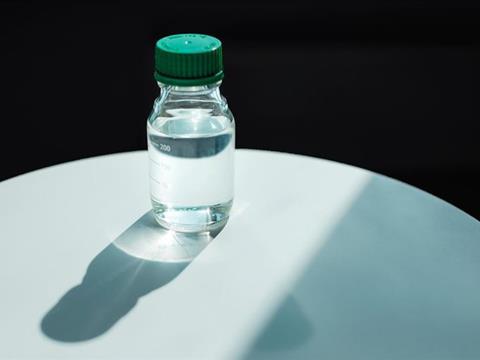
A collaboration between Neste, Suntory, ENEOS, and Mitsubishi Corporation expects to facilitate the production of PET resin from ‘renewable’ Neste RE feedstock, set to be used by Suntory to manufacture bottles in 2024.
ENEOS is a new partner for NESTE in Japan and will use bio-based intermediates based on Neste RE – a drop-in solution that claims to be made entirely from raw materials, waste, and residues such as cooking oil – to produce bio-paraxylene (bio-PX) at its Mizushima Refinery in Okayama, Japan.
This bio-PX will be converted into purified terephthalic acid, or PTA, and finally into PET resin. Suntory then plans to use the resin to create PET bottles, using a mass balance approach to allocate the bio-based materials to the PET bottles.
Mitsubishi Corporation will coordinate the collaboration between the value chain partners.
“In order to tackle the imminent climate crisis and its consequences, companies are required to take responsibility now,” explains Lilyana Budyanto, head of Sustainable Partnerships APAC at Neste Renewable Polymers and Chemicals business unit. “Through partnering along the value chain, Neste can contribute to reducing the polymers and chemicals industry’s dependence on fossil resources as well as to manufacturing of products that have a lower carbon footprint.”
Mitsubishi, Suntory, and ENEOS are already collaborating to develop a supply chain for PET bottles derived from biomass using a mass balance approach. The move hopes to unlock a low-carbon, fossil-free production process for plastic products.
Yet Mario Grimau, polymer engineer and materials science specialist at think tank SPRING, previously expressed reservations about bio-PET as a sustainable material – claiming that, while it is sourced from renewable biomass and thus lowers carbon emissions, it is still a synthetic and non-biodegradable plastic that costs more than conventional plastics in the short term.
In other news, Neste aims to recycle 150,000 tons of liquefied plastic waste into petrochemical feedstock every year, having made a $111 million investment to upgrade its refinery in Porvoo.
If you liked this article, you might also enjoy:
The Lidl approach to packaging sustainability
How did Brazil achieve its 100% aluminium can recycling rate – and can it be replicated in the EU?
Experts have their say on the EU’s Packaging and Packaging Waste Directive revisions
A deep dive into the most important packaging sustainability trends and solution














1 Reader's comment